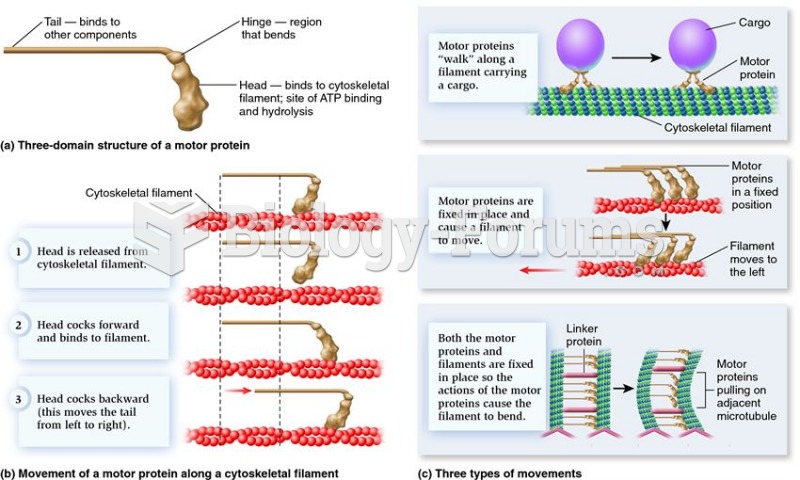|
|
|
Medications that are definitely not safe to take when breastfeeding include radioactive drugs, antimetabolites, some cancer (chemotherapy) agents, bromocriptine, ergotamine, methotrexate, and cyclosporine.
Disorders that may affect pharmacodynamics include genetic mutations, malnutrition, thyrotoxicosis, myasthenia gravis, Parkinson's disease, and certain forms of insulin-resistant diabetes mellitus.
Bacteria have been found alive in a lake buried one half mile under ice in Antarctica.
Dogs have been used in studies to detect various cancers in human subjects. They have been trained to sniff breath samples from humans that were collected by having them breathe into special tubes. These people included 55 lung cancer patients, 31 breast cancer patients, and 83 cancer-free patients. The dogs detected 54 of the 55 lung cancer patients as having cancer, detected 28 of the 31 breast cancer patients, and gave only three false-positive results (detecting cancer in people who didn't have it).
Every 10 seconds, a person in the United States goes to the emergency room complaining of head pain. About 1.2 million visits are for acute migraine attacks.
 Risk of death from motorcycle accidents (dashed lines) and passenger accidents (solid lines) per 100
Risk of death from motorcycle accidents (dashed lines) and passenger accidents (solid lines) per 100
 Children with Down syndrome have a small head, short, thick neck, flattened face, and a distinctive ...
Children with Down syndrome have a small head, short, thick neck, flattened face, and a distinctive ...





